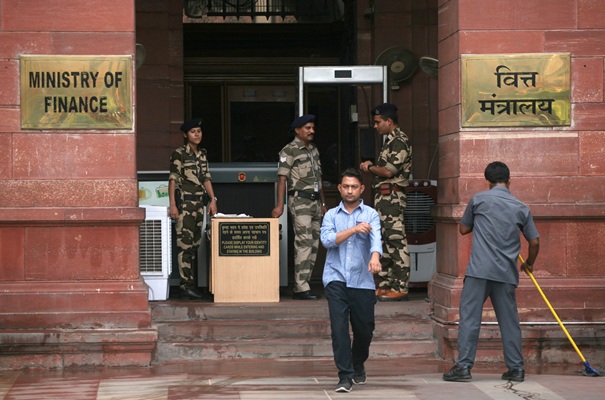.png)
North (Un)Block is an insider’s diary from Delhi’s finance ministry corridors, where policy meets politics and numbers tell their own stories.
August 21, 2025 at 8:53 AM IST
Independence Day is usually the one day reporters on the finance beat get to take a breath. The markets are shut, North Block is empty, and the only assignment is to half-listen to the Prime Minister’s Red Fort speech and file a perfunctory line or two.
Not this year.
On the evening of August 14, a few reporters on the revenue beat got a cryptic call to attend a briefing at the finance ministry. No subject line, no agenda. The Income Tax Bill had just cleared Parliament, so the safe bet was that this was about direct taxes. Off-the-record sessions inside North Block aren’t unusual, and the ministry had been working overtime to sell the new legislation.
Then came the twist. At 1000 hours on August 15, as the nation was still unpacking the Prime Minister’s Independence Day address, the finance ministry’s Twitter handle dropped a bombshell: the government wanted to move to a two-rate GST structure, with a special higher rate for a few sin goods. The messaging was careful, the hashtags patriotic, but the signal was unmistakable. GST 2.0 was about to be unveiled.
That was when WhatsApp groups lit up. The meeting at 1500 hours wasn’t about direct taxes at all. It was about the Prime Minister’s Diwali “gift”, a promise of sweeping GST reform and rate cuts.
Suddenly, the holiday was cancelled.
By the time the reporters got to North Block, the corridors were humming. Despite the public holiday, not a single organisation was missing. Phones and recorders were confiscated outside the meeting hall, as is customary at such off-record durbars. Inside, three giant screens were lit up, awaiting a PowerPoint.
At 1515 sharp, the show began. One of the officials clicked through five neat slides—GST’s eight-year journey, why reforms were needed, the Centre’s three-pillar blueprint, a revival plan for key sectors, and “next steps.” It all sounded like the kind of material a bureaucrat can deliver in their sleep.
Nothing new beyond the morning’s tweet.
Then came the real reveal. Two broad rates—5% and 18%—and a whopper of 40% for five to seven items flashed across the slides. Some tobacco items were spelt out, and the rest were left deliberately vague.
Reporters were cautioned not to spread mischief by leaking specific numbers and reminded that proposals had to be discussed with states first. For nearly two hours, queries were fielded without hurry, turning what was meant to be an off-record chat into something closer to a viva.
The questions came thick and fast.
Why unveil reform ideas before the Council meeting?
Would states accept such sweeping changes?
How would revenues be protected if the main rate dropped from 28% to 18%?
The North Block line was calm and professorial.
Officials stressed that every single item had been studied threadbare, and that while Parliament debated the Income Tax Bill, the same team had quietly built the GST reform blueprint for eight straight months.
Even as some aides hovered to wrap things up, the briefing refused to end until every query had been answered. By the time we stepped out into the evening air, Independence Day had turned into GST Day.
And yet, the story didn’t end there.
The very next day, North Block called in the editors, those who rarely cover the beat but wield the power of the front page. The sales pitch was slightly different. The reforms were billed as pro-poor, pro-MSME, designed to lighten the tax load on the common man. The stakes had moved from revenue math to political framing.
So here we are. The finance ministry has rolled out its teaser trailer for Next-Gen GST.
The real drama will unfold at the Council meeting next month, when states weigh revenue loss against political cost. Consensus will be messy, side deals inevitable. And in the meantime, the market, ever the optimist, will stay giddy on hope.
For the record, holidays are supposed to be dull for finance reporters. This one wasn’t. And if you ask them, there are worse ways to spend Independence Day than watching the fiscal fortress of North Block turn GST reform into a cliff-hanger.




